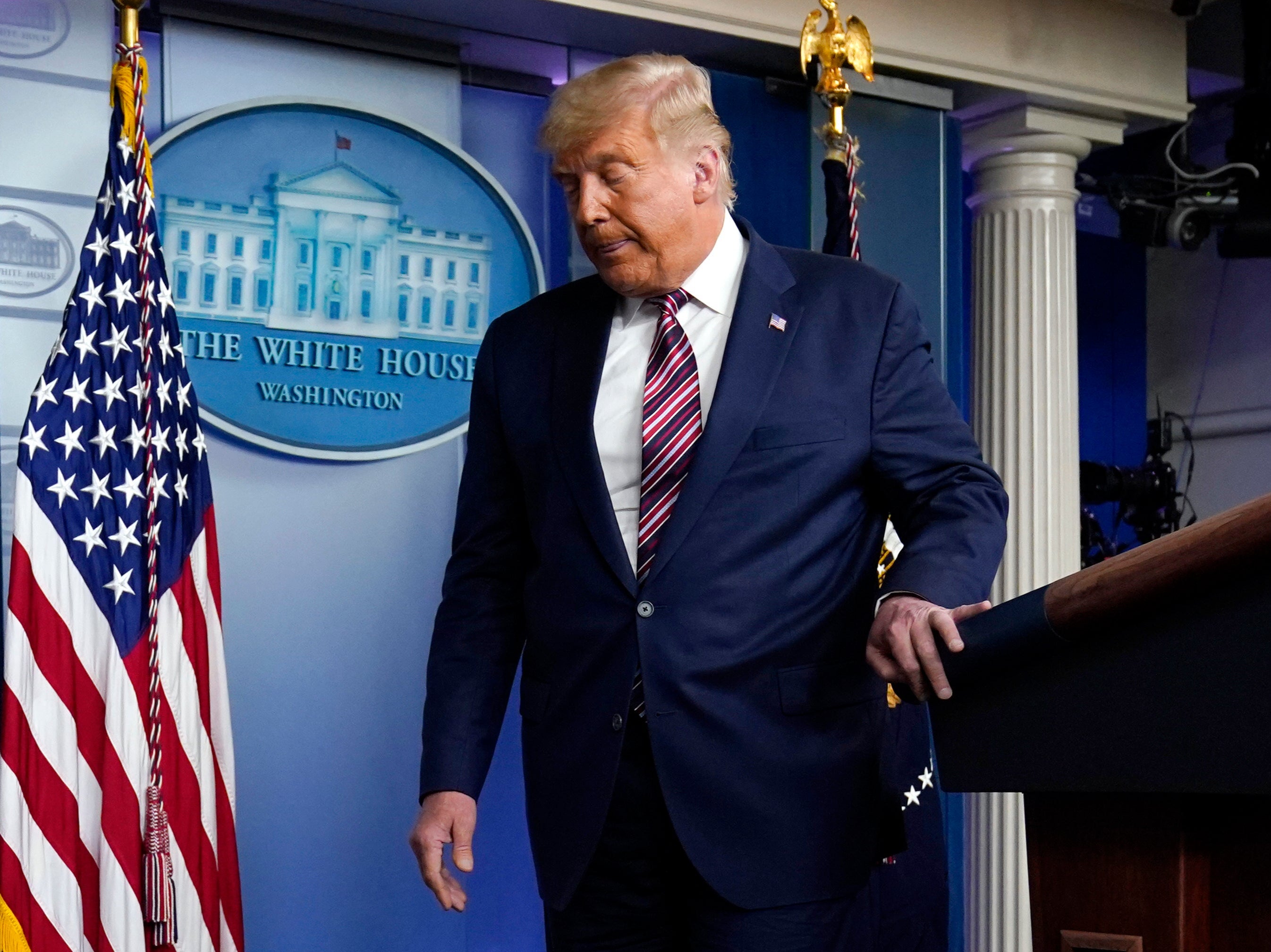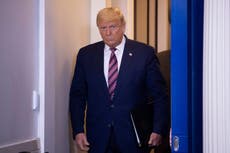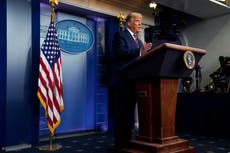Was it right for TV networks to cut away from Trump's speech?
After major networks and news outlets decided not to broadcast the president’s latest angry election speech in full, Sean O'Grady asks: where do we draw the line?


There is nothing as “ex” as an ex-president. Even though he hasn’t conceded defeat – and may never do so – power is tangibly ebbing away from Donald Trump. It is a remarkable transformation for a man used to commanding immediate and complete attention.
When President Trump made his rambling 16-minute declaration of victory, most of the major US networks cut away from him once it became apparent that it was merely a succession of desperate, baseless allegations about an improbable national conspiracy by unnamed “Democrats” or, still more vague, “they”, formed by a shadowy alliance of “big media, big money and big tech”.
Much of the president’s remarks went unbroadcast. Ironically his old enemies on CNN did carry the complete diatribe live, albeit with an immediate comment by the anchor comparing the president to “an obese turtle on his back, flailing in the hot sun”.
Even more painfully, the president found many of his angry, capitalised tweets, strident even by his standards, tagged with various warnings about their reliability, truth-wise. As he has stressed so often when White House staffers have tried to wrest control from him, social media is his special 21st-century way of communicating directly with the public. Now his voice is being muffled.
The trend raises important questions. Should traditional media organisations and social media channels have been applying editorial judgements to the president’s more controversial pronouncements long before? Do the American people (and the world) have the right to hear the president firsthand and unmediated, so they can make their own minds up?
For some journalists, it feels wrong to restrict freedom of speech in this way. Where is the line drawn – would a state of the union address, say, be edited in this manner? Should there be accountability for those doing the editing? Where does this leave the social media channels’ “Section 230” status as platforms rather than publishers?
These are questions that will not go away, because Donald Trump seems determined to play a prominent role in public life, and his style of communication will no doubt be emulated by a new generation of politicians. It is another aspect of the legacy of the Trump era with no obvious resolution.


Join our commenting forum
Join thought-provoking conversations, follow other Independent readers and see their replies
Comments